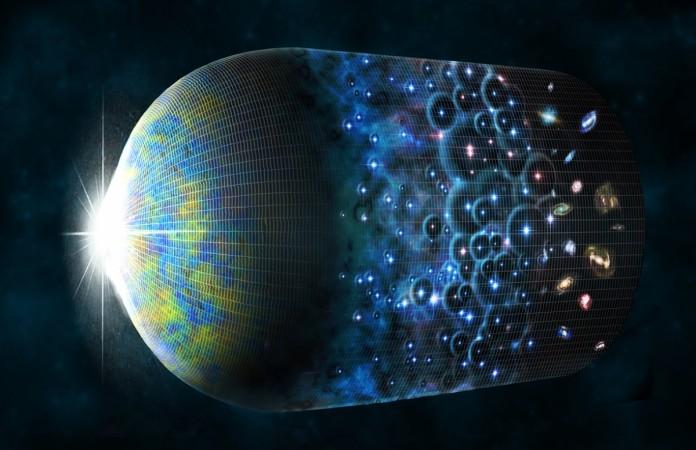
Scientists have long been conducting various experiments and studies to unveil the mysteries surrounding dark energy, and now, a team of Uppsala researchers has apparently solved the enigma of dark energy, that might be constituting 95 percent of the universe.
Their new study report published in the journal 'Physical Review Letters' suggest that the universe in which we live in a nook is actually an expanding bubble in an additional dimension.
During the study, Uppsala researchers devised a new model with dark energy and our Universe riding on an expanding bubble in an extra dimension. The simulated research revealed that our universe is accommodated somewhere on the edge of this bubble.
Scientists at Uppsala conducted this research based on the popular string theory, which has been used for years by scientists to explain universe's accelerated expansion. String theory suggests that all kinds of matter consist of tiny vibrating string-like entities. Even though many experts have criticized the use of string theory to explain dark matter, the new model proposed by Uppsala researchers seem to be convincing, and they have apparently made a milestone proposal which may reshape human understanding about the universe.
The new model used by Uppsala researchers suggested that existing matter in the Universe corresponds to the ends of strings that extend out into the extra dimension.
The new research report published by the Uppsala researchers may also provide different methods for scientists to test string theory.
Recently, researchers at Oxford University have suggested that it is not the dark matter, but a dark fluid is constituting 95 percent of the universe. The paper published in the journal Astronomy and Astrophysics revealed that a single unified fluid of negative masses could be there in the universe instead of dark energy, previously speculated by space scientists and physicists. Scientists also revealed that this dark fluid of negative mass will repel all materials around them, and this phenomenon is responsible for the rapid acceleration of the universe.














